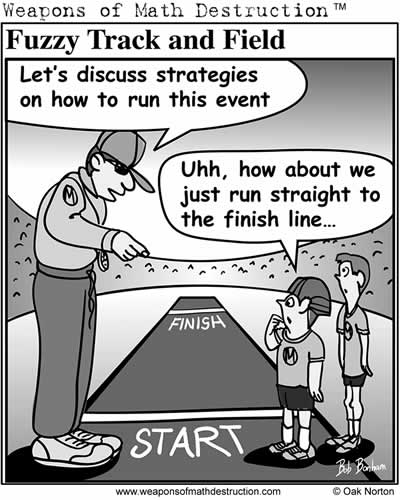|
Updates: 03-11-200903-04-2009 02-16-2009 01-08-2009 12-18-2008 12-13-2008 12-03-2008 11-26-2008 11-15-2008 09-25-2008 09-18-2008 09-03-2008 08-13-2008 07-11-2008 05-28-2008 04-15-2008 03-28-2008 03-22-2008 03-13-2008 03-11-2008 03-06-2008 01-30-2008 01-23-2008 01-16-2008 01-09-2008 12-29-2007 12-12-2007 11-28-2007 11-22-2007 11-16-2007 11-13-2007 11-07-2007 10-31-2007 10-20-2007 10-17-2007 09-26-2007 09-12-2007 08-29-2007 08-23-2007 08-11-2007 07-19-2007 07-11-2007 07-04-2007 06-27-2007 06-20-2007 06-14-2007 06-06-2007 05-30-2007 05-23-2007 05-16-2007 05-09-2007 05-02-2007 04-25-2007 04-18-2007 04-11-2007 04-04-2007 03-28-2007 03-21-2007 03-14-2007 03-08-2007 03-07-2007 03-01-2007 02-28-2007 02-21-2007 02-14-2007 02-07-2007 01-31-2007 01-24-2007 01-17-2007 01-10-2007 01-03-2007 12-20-2006 12-13-2006 12-06-2006 11-22-2006 11-15-2006 11-08-2006 11-01-2006 10-25-2006 10-18-2006 10-11-2006 10-03-2006 09-27-2006 09-20-2006 09-13-2006 09-06-2006 08-30-2006 08-23-2006 08-16-2006 08-09-2006 08-02-2006 07-26-2006 07-12-2006 07-05-2006 06-28-2006 06-21-2006 06-14-2006 05-31-2006 05-22-2006 05-17-2006 05-10-2006 05-03-2006 04-26-2006 04-19-2006 04-12-2006 04-05-2006 03-29-2006 03-22-2006 03-15-2006 03-10-2006 03-08-2006 03-02-2006 02-24-2006 02-15-2006 02-14-2006 02-11-2006 02-09-2006 02-03-2006 01-24-2006 01-19-2006 01-10-2006 01-04-2006 12-20-2005 12-08-2005 12-01-2005 11-15-2005 11-10-2005 11-03-2005 11-02-2005 10-24-2005 10-20-2005 10-16-2005 10-05-2005 09-29-2005 09-22-2005 09-19-2005 09-07-2005 08-11-2005 08-08-2005
|
Weekly Math UpdatesJanuary 17, 2007 Contents:
Legislature in Session Hi all, The legislature opened this week and it looks like there's a lot on the docket this session for Utah and education issues. There are several bills that need your attention. I've also received a couple of excellent emails from the Utah Eagle Forum explaining how bills move through the legislature and also how to contact your representative. I am going to include the highlights below as a reference for you to be more successful in influencing your legislators. This is the main website for the legislature. Bills of Interest The state legislature has done a pretty nice job organizing bills being introduced in the congress. This website will let you pull up all bills introduced in any committee of the congress (ex. click the dropdown and select House Education Committee): http://www.le.state.ut.us/asp/billsintro/committeebills.asp Being that this is the first week of the session, not all bills have been introduced or posted yet and there are some good ones coming down the pike that we will need to show our support for. Several of these bills have the attention of the Small Districts Coalition and Tad Wimmer, a petition signer and member of that coalition, has written me concerning a few of them. Their website is www.smalldistricts.com should you wish to visit it and sign up for their emails. This is Tad's report:
One other critical bill I need to mention is one being sponsored by Stephen Sandstrom whom I opposed in the election, but has stepped up to the plate on a critical item. It concerns the SPP (Security and Prosperity Partnership). If you don't know what this is, it's the first serious move toward the United States losing our soverignty and becoming a supernational country with Canada and Mexico. This is a serious item. George Bush bypassed the authority of the congress and signed an agreement with the leaders of these two countries and right now they are working on plans to build a super highway from Mexico to Canada through Kansas City, which will become a port. This means goods received at a dock in Mexico can be put on a truck and shipped to our heartland before it's ever inspected. Already leadership rosters are being drafted for this body that will make our country and citizens subserviant to the authority of the new body. For additional information about this serious issue, check out this web site and then contact your legislators and ask them to support HJR 7. Here's a direct link to this bill: Influencing Your Legislator These are some excellent tips I received from the Utah Eagle Forum, particularly the bit about sending emails and putting your message on the subject line, then you can type a sentence or two in the email saying what the bill actually is. Keep them short. I know our legislators have next to no free time and they get bombarded by constituents during this period of time but it is vital that you ACTUALLY SEND THEM A MESSAGE and let them know how you want them to vote. Others are going to oppose bills that are important to you and you need to ensure your voice and opinion is heard..
How a Bill Becomes Law in Utah I also received this short course in Utah lawmaking which I thought I'd post for you as well.
State Math Standards Committee I'm sure many of you are wondering who made the list of people that are going to re-write our state standards. This list is comprised of a variety of people, a simple majority of which were on the core review committee that said Utah didn't need to change our standards. It appears, however, that we have Russell Thompson, Chair, Department of Mathematics and Statistics, USU In God We Trust Donations We are now over $600 in collections and need less than $900 to put an "In God We Trust" poster in every classroom of every school in Alpine School District. I'm very grateful for a few of you that have made sizeable donations to help with this. Did you know that a Republic is based on the rule of law and that the constitution given to us by our founders prevents a simple majority from taking our basic rights away from us? A democracy allows the majority to rule in every situation. Right now in Alpine school district, our children (and us parents) hear time and again from the superintendent that they are trying to preserve our democracy. It's the wrong message and putting these posters in every classroom with the subtitle "The National Motto of the Republic of the United States of America" will teach our children to remember we are a republic no matter what school officials may misconstrue. Please donate today even if it's only a few dollars. By doing so, you're helping to preserve our freedom. Weekly Comic
Archive: http://www.weaponsofmathdestruction.com Till next week, Oak Norton |
|
| Copyright 2005-06, All Rights Reserved | ||
